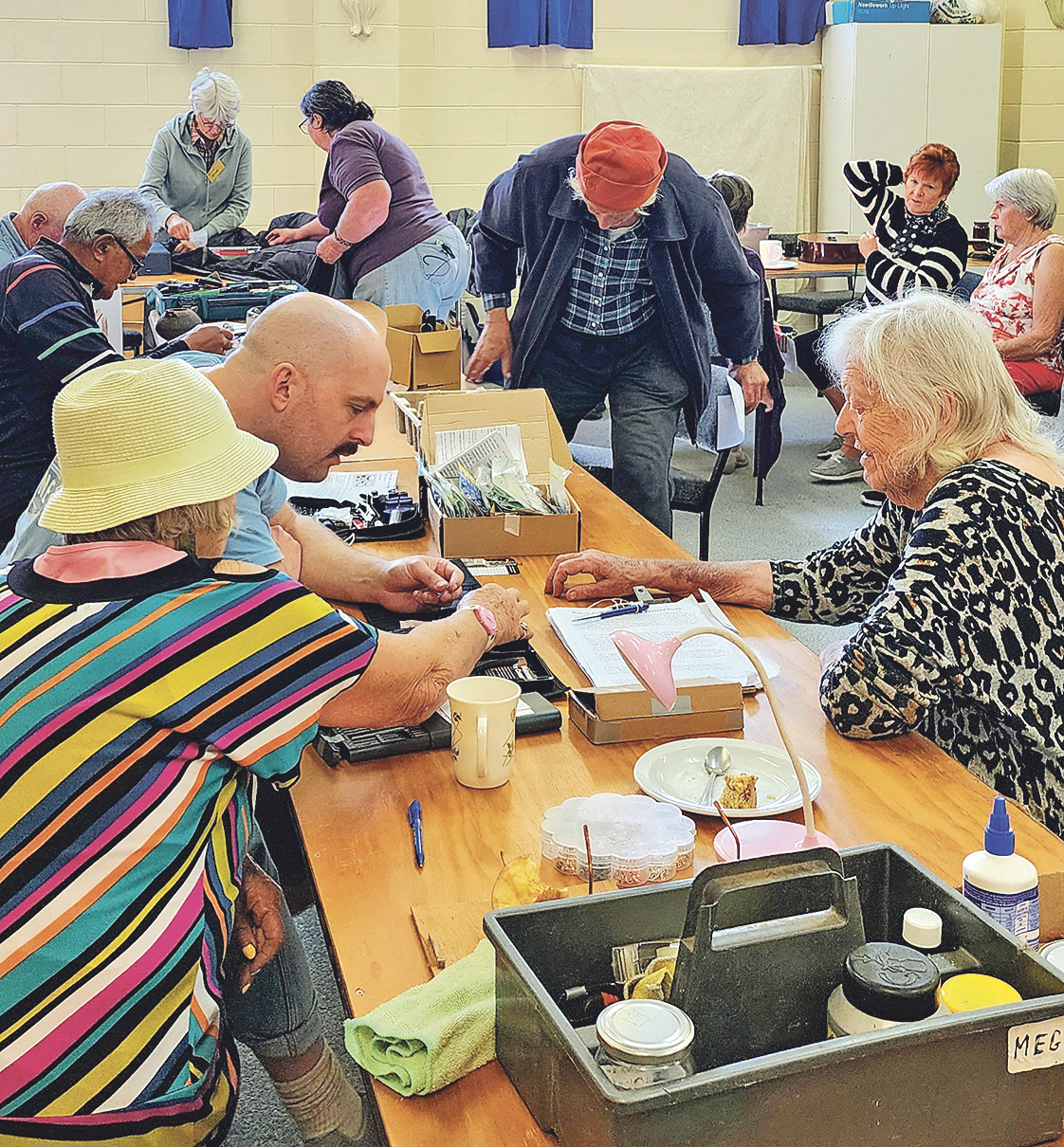Bring back the right to repair and make obsolescence obsolete

THRIVING: Ōpōtiki Repair Cafe is thriving, thanks to its volunteers. Photo supplied
.
* Repair cafes are thriving throughout the country, thanks to the Repair Network Aotearoa. Ōpōtiki’s Repair Cafe has a dedicated team of hard-working volunteers, writes East Coast Greens Ilmar Gravis.
In early February, the Right to Repair Amendment Bill, introduced to Parliament by Green Party Aotearoa co-leader Marama Davidson passed its first reading.
According to Ms Davidson “The Right to Repair is about empowering consumers to repair what they own, protecting them from recurring costs and in turn preventing more and more waste going to landfill and polluting our environment.” (rnz.co.nz 20.02.25).
For a time, we have had what could be described as a repair economy, with small electrical repair shops common throughout our communities ,where skilled technicians were able to apply their skills to a range of items backed by access to commonly required parts.
However, modern items are now made with numerous barriers to dismantling and repair, from mobile phones to common kitchen appliances.
Nonetheless, repair cafes are now thriving throughout the country, thanks to the Repair Network Aotearoa, with our very own Ōpōtiki Repair Cafe thriving thanks to a dedicated team of hard-working volunteers.
You can support the right to repair movement by volunteering at your local repair cafe, and utilising their services before discarding or replacing items.
The Repair Network Aotearoa notes that Repair Cafe success is only possible through the dedication of volunteers, however they cannot fix the broader problem.
It is for this reason the Green Party is introducing this bill to Parliament, and now that it has passed its first reading submissions are being sought, you can make a submission in support of the bill at www.parliament.nz
As well as bringing our legislation into alignment with the rest of the world, the successful introduction of the bill and changes to our legislation will have several positive effects.
It will reduce waste going to landfill, lessen the chances of New Zealand becoming a dumping ground for products that do not meet specifications in other jurisdictions, create a repair economy and provide opportunities for training and skill development, and save costs for consumers who are presently beholden to profit-driven corporates with little interest or motivation for empowering their consumers to be able to repair their products as a viable way of extending their lives.
While we may think of planned obsolescence as a recent design philosophy, its roots can be traced back to the early 20th, according to Alex Sims from Auckland University’s Business School and member of the Right to Repair Coalition (https://www.auckland.ac.nz).
Early light-bulb manufacturers realised if their products were too efficient and long-lasting their market for replacement bulbs would be far from ideal for their profits.
Ultimately, major bulb manufacturers formed a cartel and agreed to reduce the life of their products from 2500 to 1000 hours and increase their prices.
However, the concept really came into its own with mid-20th century automakers using a canny mix of marketing and psychology playing on peoples’ desires and insecurities to persuade people they need to replace their perfectly good car with a shiny new model.
It is time to turn the tide against this insidious profit-driven consumerist philosophy by introducing the right to repair, creating effective and enforceable legislation that does not make repairing a difficult to implement choice, but the first and easiest accessible option for consumers.
The right to repair bill is widely supported, with a petition by Consumer NZ gaining over 21,000 signatures presented to parliament in August 2024 (https://campaigns.consumer.org.nz/right-to-repair).
According to Alex Sims, “it is possible to design long-lasting goods. We need to make it a practice to reward manufacturers who are doing the right thing and purchase goods designed to last and keep them for their natural life spans, with a few repairs along the way”.
n Ilmars Gravis is co-convenor of the Ōpōtik–Whakatāne branch of the Green Party of Aotearoa. To join your local Green Party branch contact us at [email protected] or go online at greens.org.nz/members
Follow East Coast Greens on Facebook and Instagram